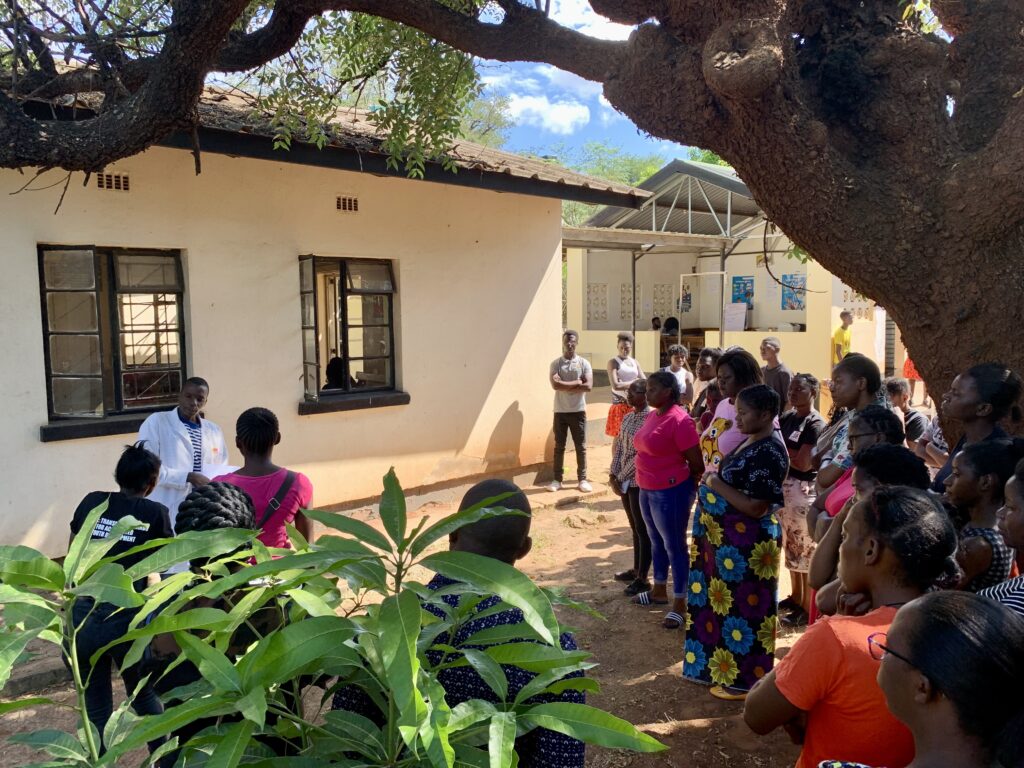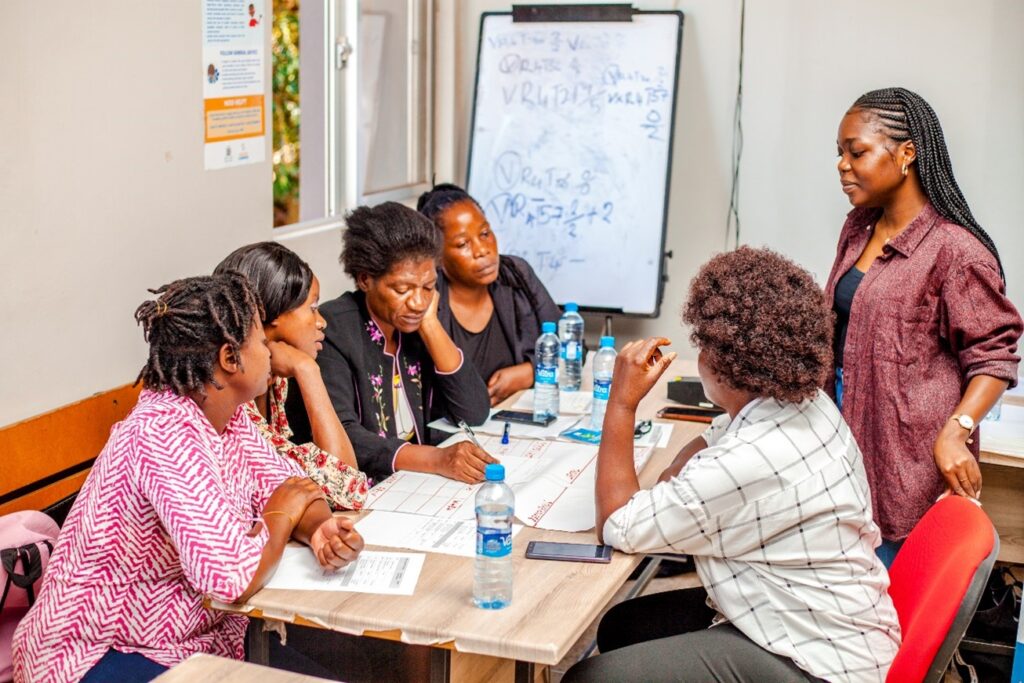Community engagement is key for tackling antimicrobial resistance: “The best place to identify and discuss problems is at the community-level”, says Mr. Given Ngangula, Public Health Nurse, Chilenje, Zambia, adding that “it’s key to give communities your listening ear so as to embrace their stewardship, cultivate and grow ownership, and value their input.”
In partnership with Wellcome, ICARS is supporting a project in Zambia that aims to improve the management of urinary tract infections (UTI) in women using the Responsive Dialogue on Drug Resistant Infections’ framework and toolkit developed by Wellcome. Responsive Dialogues provide an opportunity to develop solutions and policies which are evidence-based and grounded in local realities, and embrace ideas from the community.
Engaging healthcare workers
Starting in October 2022, the School of Pharmacy, Eden University, led and facilitated Responsive Dialogues in three locations in Zambia: Lusaka, Ndola and Livingstone (including parallel events with two groups in Lusaka and Ndola). In each round of community dialogue, the Eden team were supported by staff from local clinics, such as public health and community outreach nurses. This turned out to be invaluable not only to draw on their technical knowledge and expertise, but to build relationships and trust with community members. Engagement with nurses and healthcare workers contributed to local capacity building and will be critical to facilitate the uptake of solutions developed by community members, such as the inclusion of the topic “AMR in the context of UTI” in sensitisation activities in health clinics and in the comprehensive sex education sessions at local schools.
“With the knowledge that was acquired from the study and community sensitisation, the Maramba community [in Livingstone] will never be the same – with improved health seeking behavior and knowledge about the importance of completing drug courses they can reduce antimicrobial resistance.” – Ms Kasiku Mkwati, Registered Midwife/ Livingstone District Night superintendent

Engaging community members
Based on input from stakeholders and community outreach nurses, the participants were selected according to a set of criteria that varied between projects sites. There were five groups in total. Three groups were women only, one consisted of expecting couples and one consisted of men only. All the groups had a good representation in terms of age and geographical distribution across the community.
Over the course of 4-6 weeks, the different groups of community members discussed UTI’s in the context of AMR, current community practices, and co-created a range of solutions to tackle the identified challenges.
“When one of my children falls sick and I can’t afford medication or don’t have time to go the pharmacy, I just go over to my neighbour to explain the child’s symptoms and ask if they have any leftover drugs. A lot of us do this all the time. It’s called ‘doctor neighbour’.” – Female participant from Matero/ Lusaka
Key to creating an enabling environment for the dialogues was the capacity building of all facilitators in applying the Responsive Dialogues approach and its key principles such as inclusivity, accessibility and responsiveness. Further, the engagement of local theatre groups, the creation of a short animated film and a brochure helped to establish how the AMR problem in the context of UTI affects community members in their daily lives. This motivated the participants to discuss the topic with family and friends not engaged in the events.

Engaging stakeholders
Engaging with a broad range of national stakeholders was also key to the success of the Responsive Dialogues events. Stakeholders helped to select participants and plan the events. Local stakeholders were invited for follow-up events after each round of Responsive Dialogue to learn about the solutions developed by the community members. The continuous and cordial support from various stakeholders in the country in the AMR space also resulted in Eden University, School of Pharmacy becoming a member in the national Technical Working Group on Awareness Raising of the AMR Coordinating Committee (AMRCC).
“As a civic leader and someone sitting in the Public Health Committee at the Council, issues of antibiotic misuse and inappropriate selling of antibiotics is very common, the onus is on us to therefore implement these solutions.” – Maramba Ward Councilor/Livingstone

Next steps
The project team is currently busy analysing outcomes from the events ahead of the dissemination of the results. A range of different outputs such as handouts and policy briefs will be developed over the next months and dissemination will culminate into a national stakeholder workshop planned to take place in August 2023 in Lusaka. The aim is the uptake of co-created solutions as well as the scaling up of Responsive Dialogues to trigger sustainable change in policies and practices in Zambia and beyond.
“For women, who are disproportionally affected by urinary tract and sexually transmitted infections, we are hopeful that solutions that came from this intervention, will enhance the quality of livelihoods, and reduce morbidity. There are a few remaining activities that would help to enrich this intervention, for example the team would like to follow-up on community progress and further enrich the prospects for scale-up and roll-out to other communities. For this to happen, we are hopeful that ICARS or other funding agencies, will provide resources to complete the actualization of our goal, to empower women to improve their quality of life.” – Dr Lloyd Matowe, Principal Investigator, Eden University
Outcomes from the project will feed into ICARS’s efforts in Zambia and in particular a project led by the Ministry of Health (MoH), the Zambia University Teaching Hospital (UTH), and the Zambia National Public Health Institute (ZNPHI), that aims to test interventions to reduce the inappropriate use of antibiotics to treat bloodstream infections and UTIs.
Finally, the Zambian experience of running Responsive Dialogues will inform Guidelines to facilitate Responsive Dialogues in LMICs, which are currently being developed by the School of Public Health, University of the Western Cape, South Africa, to strengthen community engagement in ICARS’ projects and other implementation research driven projects.
Banner image: Chilenje participants during one of the conversation events in Lusaka, Framaja Photography

